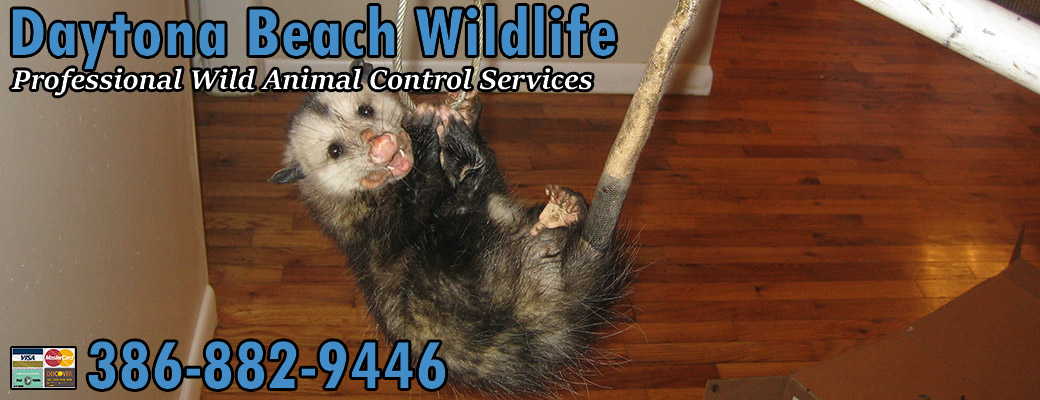Professional Wildlife Control Daytona Beach - 386-882-9446
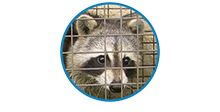
Wildlife Trapping
When it's necessary to remove animals, we focus on humane and effective trapping and relocation.
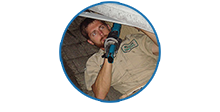
Home Repairs
A critical step - the identification and repair of any and all wildlife entry points into the home.
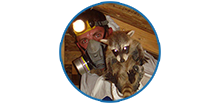
Animals in Attic
We specialize in the removal of animals in the attic - squirrels, raccoons, rats, mice, bats, and more.
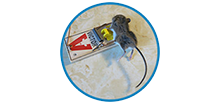
No Poisons!
We never use poisons in any part of our wildlife control, including rodent control. Poisons don't work!
We are Daytona Beach Wildlife, and we solve conflicts between people and wild animals. From squirrels in your attic, to raccoons in your trash, to bats, rats, birds, and snakes, we do it all. We specialize in safe and effective solutions to Florida critter problems. We service the greater Daytona Beach region, and we offer fast service - we can usually schedule a same-day appointment. Give us a call at 386-882-9446 any time, 24/7, and we will discuss your unique wild animal problem, and give you a free price quote over the phone. We're ready to take your call now!
Our service range: We service Volusia County, Brevard County, Orange County, Seminole County, Lake County, Marion County, and Putnam County, and more. We also service Daytona Beach Shores, DeBary, DeLand, Deltona, Edgewater, Flagler Beach, Holly Hill, Lake Helen, New Smyrna Beach, Oak Hill, Orange City, Ormond Beach, Port Orange, South Daytona, Pierson, Ponce Inlet, DeLeon Springs, Glencoe, Ormond-by-the-Sea, Samsula, Spruce Creek, Seville, and more.
Daytona Beach Wildlife Education: What To Do If You Are Bitten By A Raccoon?
Most people are hesitant around raccoons because these are wild animals and can therefore act unexpectedly. The good news is that you are very unlikely to be bitten by a raccoon. That being said, it is possible to receive a bite, especially if you provoke the animal. Because of this, it is a good idea to know what to do.
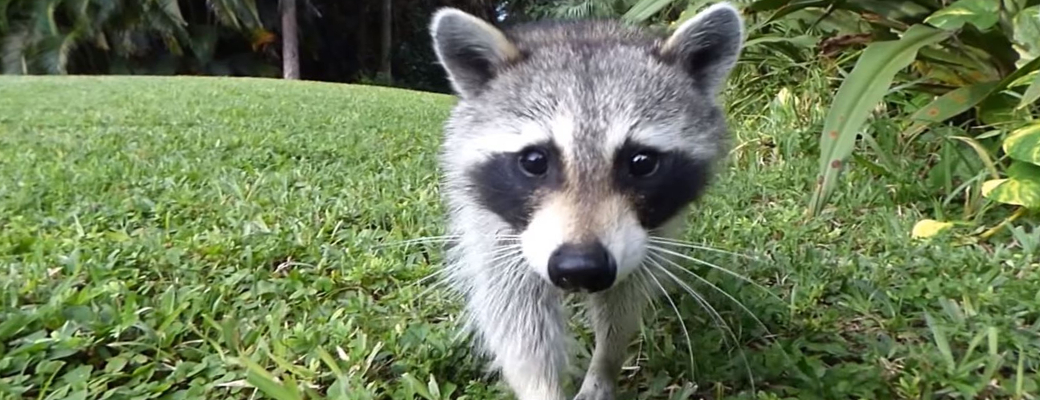
Why Bites Are Unlikely
Raccoons are typically nocturnal animals and shy around humans so most people won’t necessarily have a chance to interact with them, let alone be bitten. You will occasionally see raccoons during the day, but even then, they are very rarely aggressive towards humans. If a mother raccoon sees you as a threat, she may arch her back, growl, or make a “whoof” sound, or even lunge at you, but even then, a bite won’t necessarily occur.
Post-Bite Treatment
If you are one of the unlucky few people who gets bitten by a raccoon, then you will want to follow the same procedure as you would with any other wild animal bite. Take care of any bleeding and visit your doctor. They will investigate the wound and give you stitches if necessary. They will also disinfect it and give you other instructions. Most of the time, your doctor will suggest you keep an eye on the site of the bite for several days to a week or more. This lets you notice signs of infection as soon as possible. Even if the bite seems minor, visit your doctor if a raccoon bites you since these are wild animals. Don’t be surprised if they suggest a tetanus shot as a precautionary measure.
Are Diseases A Concern?
The good news is that in addition to it being unlikely for a raccoon to bite you, being bit doesn’t necessarily mean you will get a disease. Few raccoons are rabid so unless you see signs like a staggering gait, erratic wandering, mouth or eye discharge, and repeated high-pitch vocalization, you probably don’t have to worry about rabies. Your doctor will probably still recommend an anti-rabies treatment following a raccoon bite just to be safe.
Raccoons can also transmit a few other diseases, including leptospirosis and raccoon roundworm. Both of these are typically transmitted through their feces or urine or soil contaminated with it. Because of this, you won’t necessarily contract either just by being bitten. Your doctor will let you know which diseases are a risk after a raccoon bite and take the necessary preventative steps.
Previous Education Articles
What diseases do wild Daytona Beach animals carry?
Where should I relocate a trapped Daytona Beach rodent?
What equipment is needed to trap a Daytona Beach opossum?
What if a Daytona Beach skunk got inside my house, bedroom, kitchen, etc.?

